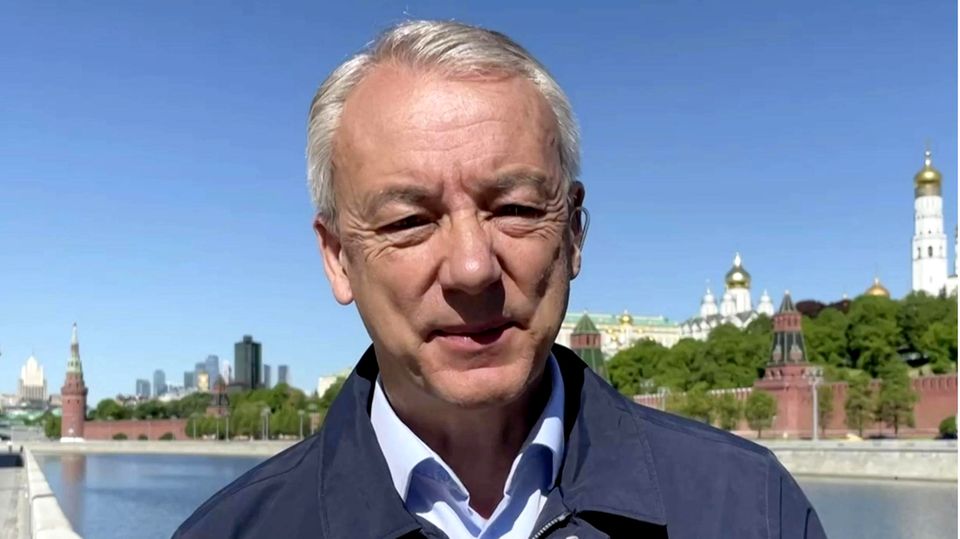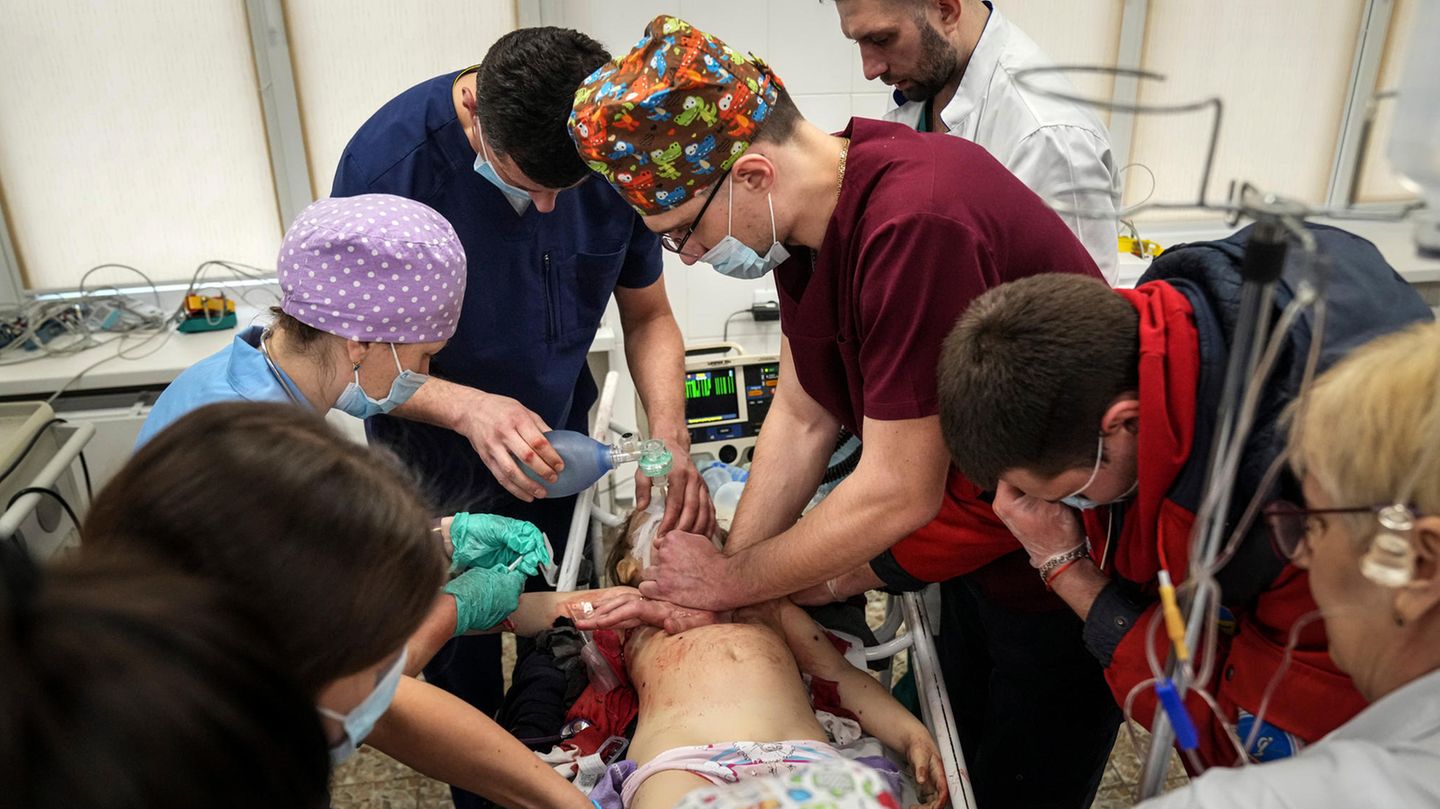Thousands of civilians have already fallen victim to the war in Ukraine. The hospitals in the east of the country are under great pressure. For the doctors, the work is an enormous physical and emotional burden.
Russia’s invasion of Ukraine claims huge civilian casualties. The armed forces of Kremlin chief Vladimir Putin are firing rockets and artillery at residential buildings, schools, hospitals and train stations, sometimes reducing entire districts or towns to rubble. They also use cluster munitions, which are banned under the 2010 Oslo Convention — which Russia has not signed — because of their particular danger to the civilian population. From the start of the Russian invasion on February 24 through May 30, 4,113 civilians were killed and 4,916 injured. However, the commissioner assumes that the actual numbers are significantly higher.
Clinics in eastern Ukraine under severe pressure
The international aid organization Médecins Sans Frontières (Doctors Without Borders) is also involved in caring for the injured. With the help of a specially equipped train, which even has an intensive care unit, MLF workers bring the wounded from the contested areas of eastern Ukraine to the safer west of the country for treatment.
Since the beginning of the war, hospitals in the east have been under severe pressure, says MSF evacuation train coordinator Yasser Kamaledin. “The idea of this action is to support the hospitals that are closer to the front lines and free up bed capacities so that they can accommodate more patients affected by the attacks, the conflict, but also other chronically ill patients.” Almost 600 people have been taken to hospitals in western Ukraine since the train journeys started on March 31.
Mykola Pastukh is also among the evacuees. He was wounded by a mortar shell near Sieverodonetsk last Saturday while trying to bring humanitarian aid to the war-torn city, the AP reports. Shrapnel was still lodged in his body, the 40-year-old, who has his right arm in a sling, told the news outlet. He had to be operated on, but the hospital in the neighboring town of Lyssychansk, which was also contested, was simply overwhelmed. So he will be taken to Lviv in western Ukraine for the operation.
The pressure on hospitals in the east is most evident immediately after an attack, when one injured person after another is brought in, the AP writes. Last week, paramedics took a patient to the Pokrovsk city hospital with a serious head injury, while doctors there were already tensely tending to the patients injured in the impact of two rockets. There were only a handful of injuries, but the hospital is overwhelmed and only working with about half the previous staff. And in rooms where sandbags are piled up in front of boarded-up windows.
Before the war, “when there was still normal work, we had ten surgeons, now there are five,” AP quotes doctor Ivan Mozhaiev as saying. In his department, the 32-year-old is the only surgeon left of the five.
“Now we have to treat people with gunshot wounds”
Mozhaiev’s professional colleague Viktor Krikliy, head of surgery at a hospital in Kramatorsk in the Donetsk region, reports something similar: Many employees of the clinic had to leave the city and close several departments, while the people from Kramatorsk and the surrounding areas still had to be cared for, he says the news agency. There are two surgical departments in his area, each of which used to have 15 surgeons. Now there are only six surgeons for both departments. The same applies to nurses, whose workforce is only about half what it was before the war.
But not only the amount, but also the type of work and the patients have changed radically with the war. “We used to treat people with illnesses, sometimes there was also trauma. Now we have to treat people with gunshot wounds,” says Krikliy.
The Kramatorsk hospital has dealt with war injuries before, according to the AP. The city is in Donbas, where Russian-backed separatists began fighting Ukrainian forces in 2014, and Krikliy also had to operate on the wounded then. “But the extent now and then is incomparable,” says the doctor. And it is the first time that the medical staff in Kramatorsk are treating many wounded civilians instead of soldiers.

“We never dreamed, even in the most horrible nightmare, that civilians in Ukraine would suffer such injuries,” says Krikliy. He had to operate on small children whose limbs had been blown off by explosions.
But despite the danger and the physical and emotional strain, the doctor wants to stay. We are surgeons. Our job is to operate on people and treat them. If everyone leaves, who will do the work,” says Krikliy. “We’re not a suicide squad and we’re not looking for a way to die somewhere. But… we do our job. And we will continue to do so.”
Sources: , ,
Source: Stern
David William is a talented author who has made a name for himself in the world of writing. He is a professional author who writes on a wide range of topics, from general interest to opinion news. David is currently working as a writer at 24 hours worlds where he brings his unique perspective and in-depth research to his articles, making them both informative and engaging.




